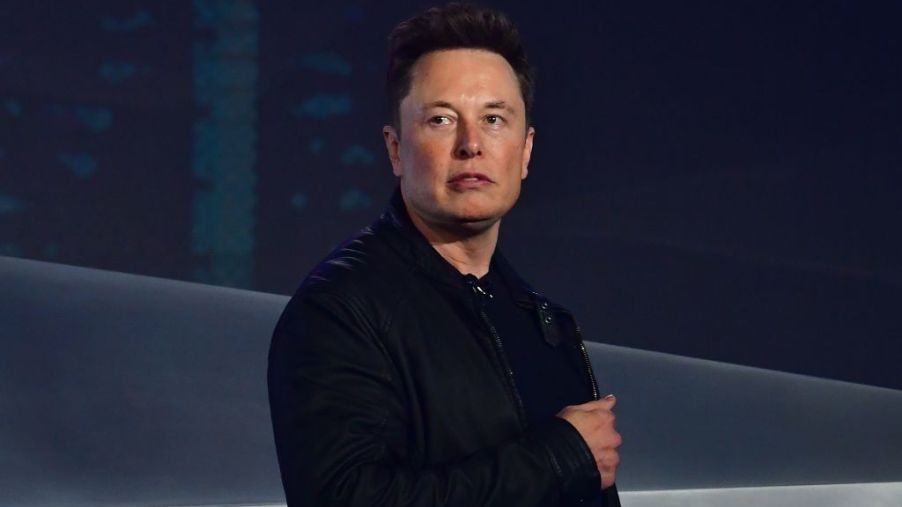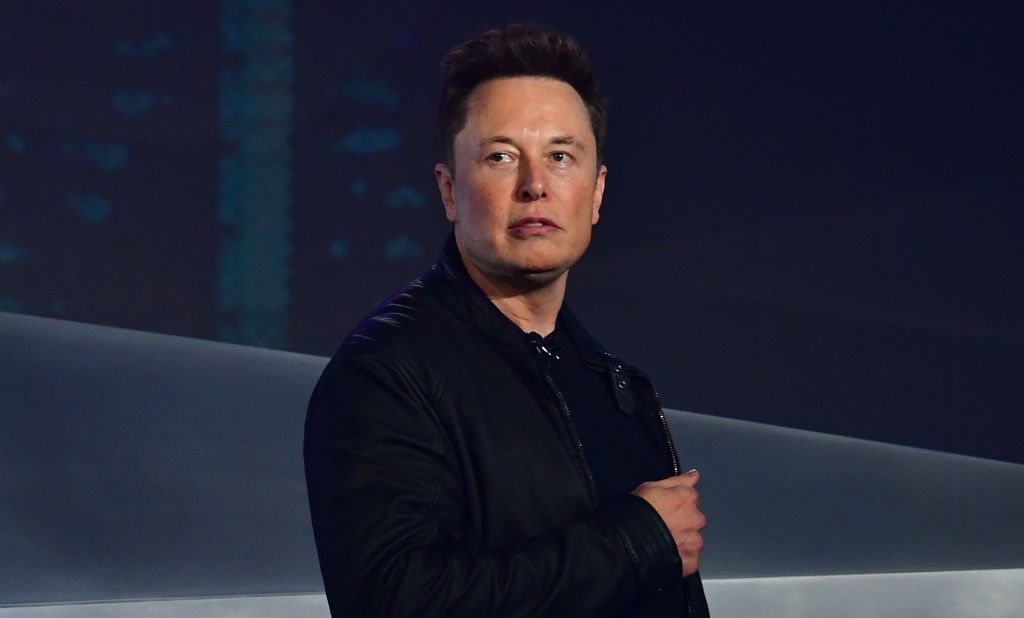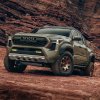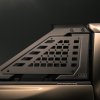
Is Tesla Making the Same Mistakes as Every Other Truck Maker?
In November, Tesla introduced its new truck, the Cybertruck, which is scheduled to go into production at the end of 2021. Pickup trucks grew to 17% of new vehicle sales in 2019, up from 14% in 2009.
Tesla hopes selling in this segment will help grow the company. At the introduction event, Tesla targeted the Ford F-150, the best-selling passenger vehicle for the past 36 years. But is Tesla making the same mistakes as other truck makers in trying to compete?

The Cybertruck’s features
Tesla’s truck has an angular design and a number of features demonstrating strength and utility. It’s constructed with a stainless-steel body that can be sledgehammered without damage. Its unique tailgate has a pull-out panel that turns it into a ramp.
The windows are made of Tesla armor glass and are supposedly bulletproof, although the demo of this at the reveal event failed as a metal ball thrown at the window caused cracks. The truck has 100 cubic feet of lockable storage, and the bed is covered by a tonneau strong enough to stand on top of it.
The top Cybertruck version will include three motors, have all-wheel drive, and start at $69,900. It will be able to tow up to 14,000 pounds, go from zero to 60 mph in 2.9 seconds, and travel more than 500 miles before needing to be charged.
The two-motor all-wheel drive model will start at $49,000 and be able to tow 10,000 pounds. The base price is $39,900 for the single-motor rear-wheel drive model, which can tow 7,500+ pounds.
Luxury truck failures
Judging by all the included features, it’s clear that Tesla’s truck is considered a luxury truck. Other manufacturers have released luxury trucks, with little success.
Lincoln, a Ford division, has failed twice with luxury trucks. The Lincoln Blackwood, based on the F-150, was only sold in the U.S. for model year 2002. The Lincoln Mark LT was sold from 2006 to 2008.
Cadillac tried the Escalade EXT, available from model years 2002 through 2013, which was based on the Chevrolet Avalanche. While a Mercedes GLT truck was announced, it doesn’t appear to be available yet. It seems like there just isn’t a significant market for luxury pickup trucks.
What people want in a truck
People want more luxury features in their vehicles, but the primary reasons for purchasing a pickup truck are the towing and hauling abilities along with reliability.
People also prefer to buy from established truck manufacturers and just get luxury features with higher trim levels. The 2018 Pickup Truck Study from Cox Automotive Research found that people who purchase pickup trucks don’t really worry about fuel economy when picking a truck, a big draw for electric vehicles.
Tesla CEO Elon Musk targeted the Ford F-150 during the Cybertruck’s reveal event. According to Tesla, the Cybertruck will be able to haul and tow more weight than the 2020 Ford F-150.
The Cybertruck’s maximum payload is 3,500, according to Tesla, and the F-150’s max is 3,270. The Cybertruck’s towing max will be 14,000 pounds, and the F-150’s max is 13,200 pounds. However, only the Cybertruck with three motors beats the F-150 and Silverado in towing.
Pickup trucks often function as work tools in addition to transportation, so reliability is a top priority. Tesla’s reliability has been an issue in the past, with problems popping up for both the Model 3 and the Model X SUV.
Other electric trucks
Buyers hoping to stick with their preferred truck brands but also switch to an electric vehicle will soon have several options. There are designs for an electric Ford F-150, but details have not yet been released.
“We look forward to our all-new F-150 hybrid coming next year and all-electric F-150 in a few years,” a Ford representative told Business Insider by email.
The first General Motors electric pickup truck will go on sale in the fall of 2021. A newer company, Rivian, with backing from Ford and Amazon, will also release an electric truck next year.
Is the Tesla truck a mistake or aimed at a different buyer?
To be successful, Tesla’s truck will need to lure buyers away from other pickup truck brands. While Tesla focuses on offering something different, the established truck manufacturers have spent years developing the functionality their customers are looking for. The Cybertruck may need to appeal to buyers looking for something unique or high-tech.
While people on Twitter have been laughing at the futuristic design of the truck, it’s unclear how its appearance will affect future sales. Even Musk has acknowledged that the Cybertruck might not turn out to be a hit.
In an interview last year on the Recode Decode podcast with Kara Swisher, Musk said,
“You know, I actually don’t know if a lot of people will buy this pickup truck or not, but I don’t care. If there’s only a small number of people that like that truck, I guess we’ll make a more conventional truck in the future.”
The Cybertruck may have more fans among technology enthusiasts than the usual truck fans. “As a technology statement for tech-oriented professionals and fans, this truck’s departures from the norm will be seen as assets, not liabilities,” said Karl Brauer, the executive publisher at Kelley Blue Book and Autotrader, in a statement.
Once the Tesla Cybertruck is released, it remains to be seen if it fails like past luxury pickup trucks or if it finds a foothold in a niche market.


